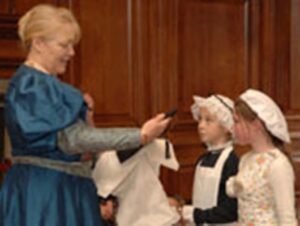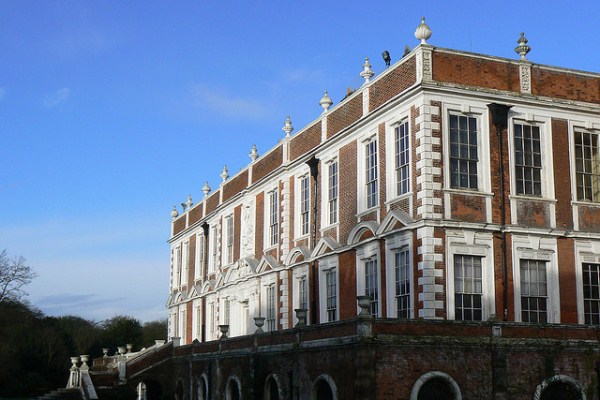
Croxteth Hall is once again preparing to celebrate Christmas in its unique Victorian way.
Thousands of pupils in Liverpool and the surrounding areas will be taken back to 1891 to get a feel for Christmas in the Victorian era as part of a ‘living history’ education initiative.
The hall is celebrating the 25th anniversary of this education programme, and over the last quarter-century an estimated 50,000 pupils have experienced Victorian life in the home of the former Earl of Sefton.
This year’s schedule, which commences on 14th November and runs for a month, will see 2,500 students relive the Victorian experience as part of their Key Stage Two syllabus.
The Croxteth Hall living history scheme is one of the longest running programmes of its type in the country.
Councillor Peter Mitchell, Mayoral Lead on Parks, said: “This programme has enthralled youngsters for the past 25 years and it really brings a part of the city’s history to life. For some of them it is like they are taking part in an episode from Downton Abbey but as well as being very enjoyable they get a greater understanding of conditions and society over 120 years ago.”
Croxteth Hall’s interior and surrounding gardens provide visitors with the chance to step back in time.
Upon arriving at the hall, the children are made to apply for jobs that they can do for Lord and Lady Sefton. The new ’employees’ arrive in period costume at the hall and are introduced to a butler who reminds them of their place within the social hierarchy and the tasks they must do in order to remain on Lord Sefton’s payroll.
The children and their teachers are immediately under pressure to learn and develop skills under the watchful eye of Lord Sefton’s staff. Croxteth Hall employees, volunteers and local history enthusiasts also partake in the day’s activities, and always act in character.
Lord and Lady Sefton’s presence ensures the children learn something of their lives and pastimes, from pheasant shooting to social etiquette. After a tough day feeding livestock and scrubbing pots and pans, the pupils are able to relax at the Sefton’s servants Christmas party, a traditional event with carols, food and period party games.
Experiencing inequality and sexism, alongside Victorian morals, ethics and discipline, is believed to provide a more realistic social reality of the Victorian era than any classroom lesson.

